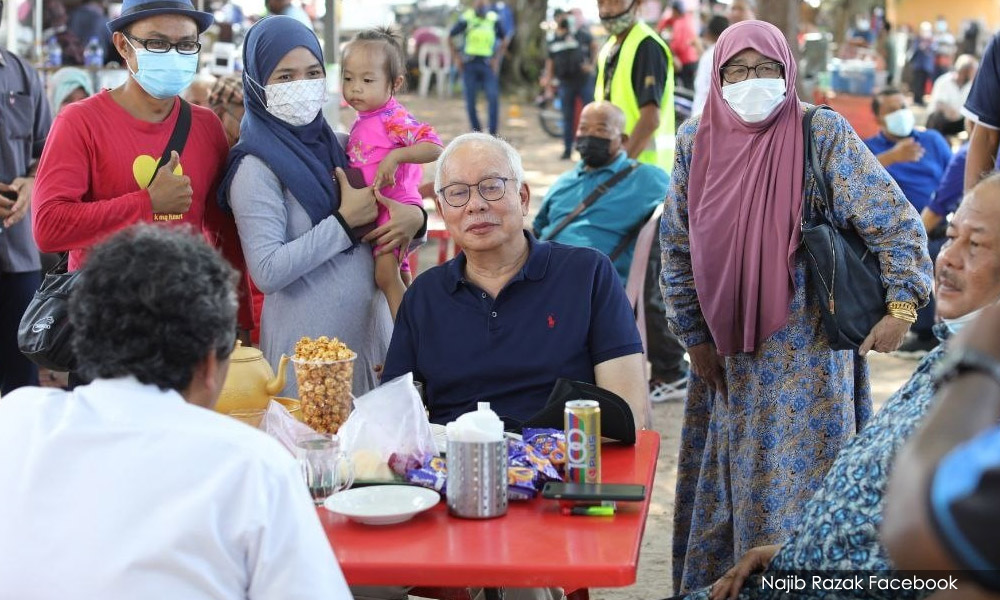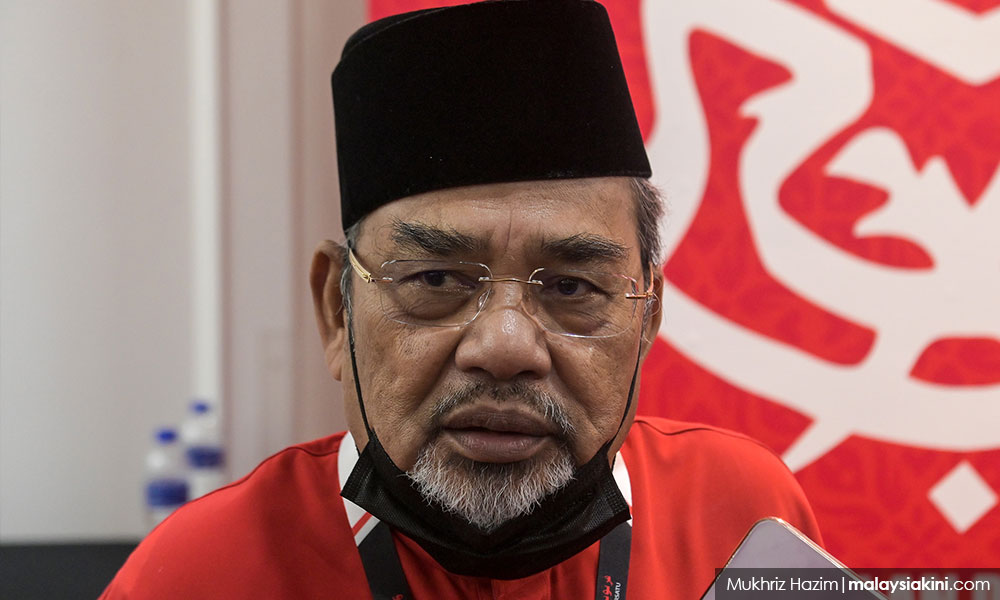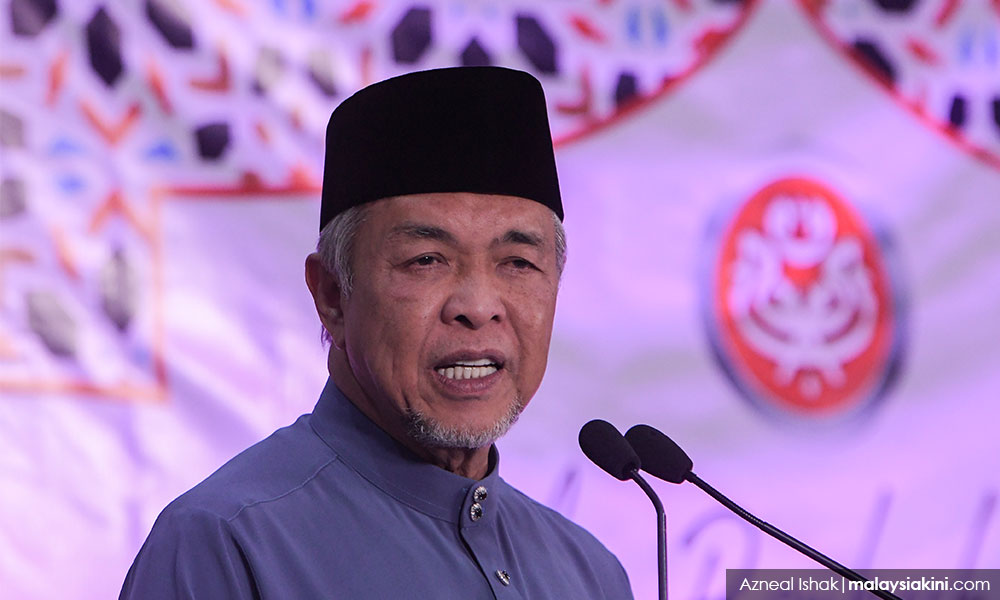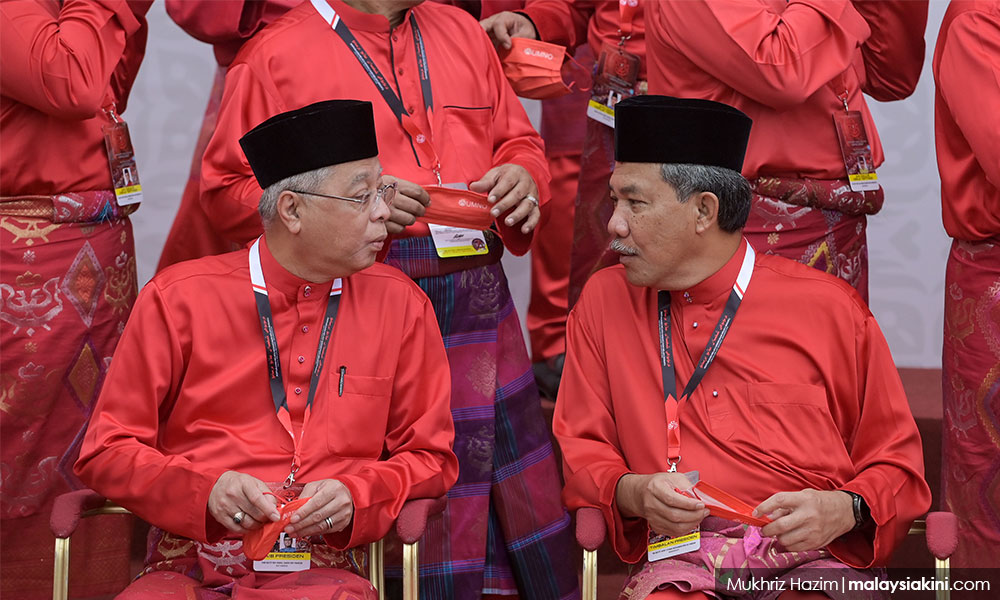Last month Umno’s supreme council announced that Prime Minister Ismail Sabri Yaakob would be the party’s candidate for the country’s top job in the coming 15th general election (GE15).
The reasons to do so were two-fold: to convince the PM to call an early election and to tap into the resources of the incumbent government for the GE, including the traditional support that rallies around the holder of the office of the prime minister.
Since this announcement, there has been an all-out effort to boost the support and profile of Ismail Sabri, from throwing a ‘hero’s welcome’ upon his return from a trip to the United States (where his performance was overshadowed by other leaders in Asean) to greater media attention on his initiatives, particularly his focus on promoting the national language.
A month later, the costs of making this decision are coming to the fore. Rather than strengthen Umno’s chances electorally, announcing Ismail Sabri as the leader going into the next election has weakened support for the party’s chances. Ironically, by offering the lucky seat holder the chance to earn his own mandate, the effect has been to wobble Umno’s electoral chances.
Four factors are at play:
No pull: Low popularity
The foremost is that Ismail Sabri lacks strong public support. In fact, his predecessor and the man who positioned him as deputy, Muhyiddin Yassin, has stronger support among the Malay grassroots. Even convicted former prime minister Najib Abdul Razak has more support than Ismail Sabri does, especially among the Umno grassroots.

While Ismail Sabri does not evoke the strong reactions of leaders such as former prime minister Dr Mahathir Mohamad and is more popular than opposition leader Anwar Ibrahim, the Ismail Sabri brand is empty. He is running on the support for Umno and Muhyiddin’s Perikatan Nasional (PN) government rather than his own.
In office for less than a year, Ismail Sabri has no legacy he can claim. There are no major new policies and no significant successes that resonate with the public. Most of the policies he has put in place were those of the two governments before him, such as Pakatan Harapan’s push for a higher minimum wage. He is seen as not having any ideas of his own.
Ismail Sabri has been able to ride on the opening up around Covid-19 and the improvement in the economy that has accompanied the opening, but he is not seen as responsible for bringing about these changes. In fact, if any one person is seen as navigating Malaysia through the difficult past year, it is Health Minister Khairy Jamaluddin, who overshadows Ismail Sabri in terms of performance.
At the same time, Ismail Sabri has had to rely on the support of the opposition to hold his majority in Parliament through a memorandum of understanding, rather than be his own man.
The effect of this is that while Ismail Sabri has the advantage of the office he holds, his own persona and leadership is perceived as weak, lacklustre and lacking direction. Importantly, there are concerns that he will not be able to pull new supporters to Umno – in contrast to what occurred in the Johor state election where the popular (later displaced) menteri besar candidate Hasni Mohammad strengthened support for the party.
Awakening opposition supporters
In fact, the effect of embracing Ismail Sabri as Umno’s choice as the GE15 PM has been to strengthen opposition to his government. It has brought more scrutiny to what he has (or has not) done in the office.
It has also branded Ismail Sabri’s government as an ‘Umno government’. The party can no longer position itself as something different; they are now in office as their leader is in charge; they are responsible for how the leadership manages (or does not manage) the current challenges Malaysia faces.
Ismail Sabri has also been seen to increasingly embrace some of the worst Umno old practices. The most striking has been the return of unqualified political appointees to important positions.

Pasir Salak MP Tajuddin Abdul Rahman’s embarrassing appointment as Malaysian ambassador to Indonesia is a case in point. From his own office to those assigned abroad, Ismail Sabri is seen as not appointing the calibre of people with the acumen needed to strengthen Malaysia.
Ismail Sabri has also been seen as facilitating the return of Najib by legitimising him and avoiding taking a principled position on the crimes associated with 1MDB.
The problems go beyond individuals. Ismail Sabri’s government is seen to be undermining institutions – the judiciary, anti-corruption efforts and Parliament – and engaged in needless attacks on artists for satire.
There has been an open embrace of race-based policies in his policy programmes, as he tries to improve his legitimacy among the Malay grassroots. By focusing on Bahasa Malaysia, he has returned to still sensitive issues of language and ironically created the view that he is not competent to conduct government affairs in multiple languages, especially English, and wants to displace other local languages.
What has happened is that Ismail Sabri has reminded many of the Umno of the past. Rather than be forward-looking, with greater talent, problem-solving and the promise of better governance, his government has moved politics back to a more polarised position.
Many supporters of the opposition unhappy with Pakatan Harapan’s performance and current leadership are now more concerned with an Umno return. There is a marked counter-response to a return to Umno governance. What holds the opposition sentiment back is concerns with its poor leadership and divisions. Yet, Ismail Sabri’s government has created a push back from Umno.
Umno in a quandary
It has also served to divide the party. Many inside Umno do not believe Ismail Sabri is a party man. Ismail Sabri is seen as working with Bersatu and PAS, both parties that evoke strong reactions among Umno grassroots. For some, Ismail Sabri is seen as betraying the party every day he works with their political enemies.

The leadership issue in the party continues to be unresolved. There is tension between those rallying around Ismail Sabri for potential advancement and patronage, and those sticking to former deputy prime minister Ahmad Zahid Hamidi as he holds the party presidency (with the power of choosing candidates in GE15) and those remaining loyal to cash king Najib.
Given the ‘bait and switch’ over the MB in Johor, many are not confident Ismail Sabri will be the actual PM choice. His rivals remain strong in the party. The choice of Ismail Sabri may have been convenient, but is not necessarily confirmed.
The decision has also prevented the party from moving forward. In choosing Ismail Sabri, alternative leaders in Umno, including the popular party deputy president Mohamad Hasan, were put to the side for the immediate interests of the party leadership engaged in legal cases, heavily vested in an early election to offset any negative legal decisions. The party is still caught in its past, failing to reform and strengthen its political base.

The problems of the party are also in the present. Umno currently faces an Ismail Sabri dilemma. Ismail Sabri will work to push the election as far out as possible because he cannot be assured of leadership. Yet at the same time, the longer he is around, Umno could potentially become electorally weaker.
This will be compounded by rising inflation and a weaker ringgit, which will offset the economic gains of an opening economy and be blamed on the Ismail Sabri Umno-endorsed government. With greater insecurity in the economy, there will be less security from endorsing Ismail Sabri.
The expedient choice of Ismail Sabri as the PM candidate for GE15 may in fact be less advantageous as the lucky PM may not bring Umno the luck it expects. - Mkini
BRIDGET WELSH is a senior research associate at the Hu Fu Centre for East Asia Democratic Studies and a senior associate fellow of The Habibie Centre. She currently is an honorary research associate of the University of Nottingham, Malaysia's Asia Research Institute (Unari) based in Kuala Lumpur. She tweets at @dririshsea.
The views expressed here are those of the author/contributor and do not necessarily represent the views of MMKtT



No comments:
Post a Comment
Note: Only a member of this blog may post a comment.